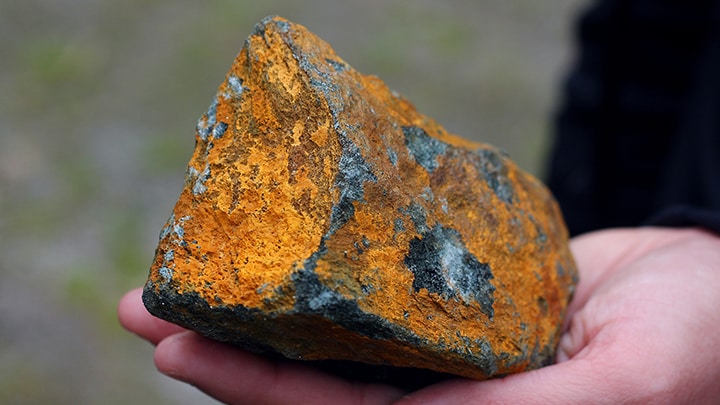NXP’s responsible sourcing of minerals is an important part of our ongoing efforts to minimize the
environmental and social impact of each product we design and produce. It is, therefore, a top
priority to avoid the use of minerals in our products that may come from an unethical source. As a
responsible company, we must go beyond what is required by local, regional and global laws. It is
our duty to conduct due diligence to ensure the minerals we use in our products aren’t from mines
that exploit child labor, have unsafe working conditions or are linked to human trafficking or
civil war — also known as “conflict” or “blood” minerals.
We go beyond compliance because protecting people is the right thing to do. By operating as a
responsible company, our customers can be sure that they, too, are contributing to social
well-being.
Eszter Kiss, Responsible Minerals Sourcing Program Manager at NXP.
Since 2013, when we began chairing the World Semiconductor Council’s Conflict Minerals team, NXP
has been working to have a leading voice in the conflict minerals world. A year later, we joined
the Responsible Minerals Initiative (RMI), and we currently chair the European Partnership for
Responsible Minerals (EPRM), which brings together members of government and institutions, supply
chains, and civil society organizations. We’ve also had a voice in the development of standards
and compliance tools beyond our industry.

Tracking down data for conflict minerals requires ongoing vigilance. Our due diligence activities
are based on the
“OECD Due Diligence Guidance for Responsible Supply Chains of Minerals from Conflict-Affected
and High-Risk Areas”. he four commonly known conflict minerals are tin, tungsten, tantalum, and gold (3T&G)
and, since we do not use minerals in their raw form or purchase them directly from mining
companies or smelters, we engage with our suppliers to track and report the minerals’ sourcing
chain. (Supply chains from mine to smelter/refiner are on average two to three tiers deep, but
some are eight tiers deep).
Since 2017, our systems and processes in place have certified our supply chain status as
conflict-free. With the help of Global Procurement and their engagement with our suppliers, our
ECO-Products team within Sustainability frequently releases our list of smelters used in our
products and the mining regions from which they come. We continuously engage and educate our
suppliers while maintaining a comprehensive record of our actions and due diligence efforts.
We are going beyond what is legally required of NXP by collaborating with governments, civil
society organizations (CSOs) and many companies among various industries within the EPRM. The goal
is to create better social and economic conditions for mine workers and local mining communities.
NXP, as a strategic partner, supports other companies so they too can responsibly source and
support the mine sites with responsible production. We openly share our knowledge on our supply
chain due diligence, provide insights to get others started on responsible sourcing and actively
assist to support artisanal and small-scale miners on their journey to becoming responsible supply
chain participants with greater access to the global market.
We also strive to be transparent on our continuing journey by publishing our policy for
Responsible Mineral Sourcing on our website,
along with various reports such as our Conflict Minerals Reporting Template (CMRT), Cobalt
Reporting Template (CRT), Conflict Minerals Specialized Disclosure Form (Form SD) and any updated
information that we’re able to share.
We work closely with our procurement and New Product Introduction (NPI) teams to keep them
informed of current requirements, but also what may be coming down the road
Eszter Kiss, Responsible Minerals Sourcing Program Manager at NXP.
To learn more, visit our
Sustainability
page.





